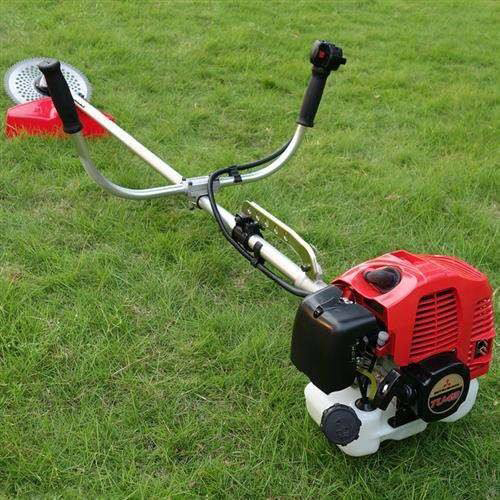Rotary Mower Innovation Brings High Productivity to Modern Farms
In the ever-evolving landscape of modern agriculture, efficiency and precision have become essential for farmers seeking higher productivity and sustainable growth. Among the many tools transforming agricultural operations, the rotary mower stands out as a critical innovation. Designed to handle large fields, tough vegetation, and varied terrains, rotary mowers are helping farmers achieve faster, cleaner, and more efficient land maintenance.
The introduction of advanced rotary mower technology represents a leap forward in both design and performance. From adjustable cutting heights to enhanced safety mechanisms and fuel-efficient engines, today’s rotary mowers are built not just to cut grass — but to optimize productivity while reducing maintenance time and operational costs.
Revolutionizing Agricultural Efficiency Through Rotary Mowing
Modern rotary mowers are engineered with precision blades that can manage everything from fine pasture grass to dense weeds and shrubbery. This versatility has made them indispensable for farms, vineyards, orchards, and large estates where vegetation control is crucial for crop health and productivity.
Unlike traditional flail mowers or manual cutting methods, rotary mowers operate at high speeds and use aerodynamic blade designs to deliver cleaner cuts with minimal soil disruption. The result is improved grass regrowth and a more uniform field surface, contributing to better crop management and irrigation efficiency.
Technological Advances Driving the New Generation of Rotary Mowers
The latest generation of rotary mowers integrates smart technology and eco-friendly engineering. Many models now feature sensor-based blade adjustments, low-noise engines, and fuel optimization systems that automatically adapt to ground resistance and cutting conditions.
Electric and hybrid rotary mowers are also entering the market, providing sustainable alternatives to diesel-based systems. These machines use high-torque electric motors that reduce emissions while maintaining cutting power — perfectly aligning with the global shift toward green farming practices.
Additionally, manufacturers have prioritized operator comfort and safety, equipping modern rotary mowers with vibration-reducing frames, automatic blade stop systems, and GPS-based precision control for mapping and navigation across large areas.
The Role of Rotary Mowers in Sustainable Agriculture
Sustainability has become a cornerstone of agricultural innovation, and rotary mowers play an increasingly important role in this transformation. Efficient mowing helps manage weeds without the overuse of herbicides, reducing chemical dependency while promoting biodiversity.
By optimizing fuel consumption and reducing unnecessary engine idling, the latest rotary mowers also contribute to lower greenhouse gas emissions. This dual benefit — higher productivity and environmental responsibility — makes them a smart investment for forward-thinking farmers.

Applications Beyond Traditional Farming
Rotary mowers are not limited to open-field farms. Their use has expanded to include orchards, vineyards, golf courses, parks, and solar farms, where regular vegetation control is crucial.
In solar energy installations, for example, rotary mowers help maintain vegetation around panels, preventing shading that can reduce power output. Similarly, in livestock farms, these machines maintain clean grazing areas, supporting animal health and pasture quality.
Q&A Understanding Rotary Mower Technology and Use
Q1: What distinguishes a rotary mower from other types of agricultural mowers?
A1: Rotary mowers use fast-spinning horizontal blades to cut grass efficiently, unlike flail or reel mowers that rely on vertical movement. This design allows rotary mowers to handle thicker vegetation and cover more ground in less time.
Q2: Are rotary mowers suitable for uneven or hilly terrain?
A2: Yes. Many models feature floating decks and adjustable blade heights that allow smooth operation on slopes and uneven fields, reducing the risk of scalping or soil damage.
Q3: How do rotary mowers contribute to farm sustainability?
A3: They minimize fuel usage through efficient engine control, reduce chemical weed management needs, and lower emissions when integrated with hybrid or electric technologies.
Q4: What kind of maintenance does a rotary mower require?
A4: Regular cleaning, blade sharpening, and lubrication are key. Many new designs have self-cleaning decks and quick-release components that simplify maintenance.
Q5: Can rotary mowers be used with tractors or as standalone machines?
A5: Both options are available. PTO-driven rotary mowers attach to tractors, while standalone units are ideal for smaller farms or specialized terrain management.
Economic Benefits Maximizing Farm ROI
Adopting modern rotary mower technology yields measurable financial benefits. Reduced fuel consumption, fewer labor hours, and longer machine lifespan directly translate into cost savings.
Moreover, by ensuring consistent mowing and soil preservation, these machines support better crop yields — a key factor for profitability in competitive agricultural markets.
Future Outlook Smart Automation and Connected Farming
The future of rotary mowing lies in automation and connectivity. Manufacturers are developing AI-assisted mowing systems capable of learning field patterns and adjusting performance in real-time. Integration with farm management software enables data collection on mowing frequency, fuel efficiency, and vegetation growth trends.
Such intelligent insights empower farmers to plan maintenance cycles more effectively, reduce downtime, and optimize resource allocation — reinforcing the role of rotary mowers as integral components in smart agriculture.
Conclusion
The rotary mower has evolved from a simple grass-cutting machine into a high-tech agricultural powerhouse. Combining cutting precision, energy efficiency, and digital innovation, it embodies the direction of modern farming — productivity paired with sustainability.
As agricultural challenges grow more complex, equipment like the rotary mower will remain central to achieving balance between output, environmental stewardship, and long-term profitability. For farmers worldwide, investing in rotary mowing technology means investing in the future of efficient and sustainable agriculture.
5. Get Your Personalized Solution Now
→ Call the selection hotline: +86 158 5359 8030 (also supports accessory customization inquiries).








